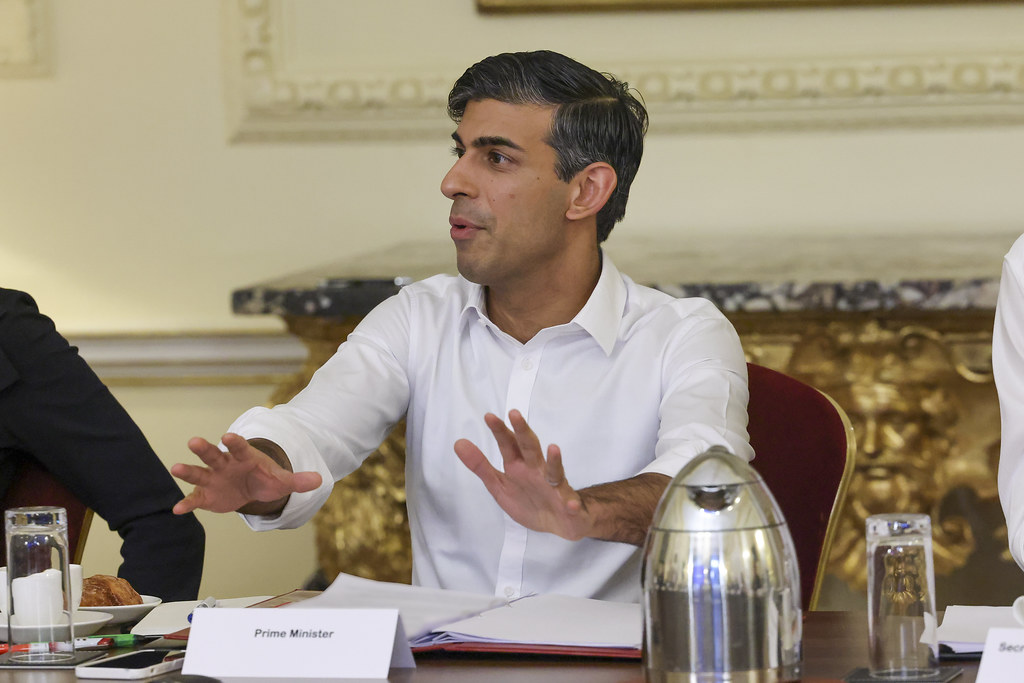In a BBC documentary earlier in the week, he claimed Russian president, Vladimir Putin, threatened him with a missile strike…reports Asian Lite News
After a silence of over 100 days since her resignation as prime minister after serving the shortest term in this office in British history, Liz Truss, Rishi Sunak’s immediate predecessor, launched a broadside against her successor on Sunday.
In a 4,000-word opinion piece in The Sunday Telegraph newspaper, she described Sunak’s increase of corporation tax from 19 to 25 per cent as “economically detrimental”.
She went on to write – in an unmistakable criticism of the current prime minister’s handling of the economy – that she wanted to change things as prime minister and “not manage decline or to preside over our country sliding into stagnation”.
Sunak, who is of Indian origin, steadied the boat after her 45 billion pound unfunded mini-budget caused a series economic crisis in the UK; but the country has slid into recession under his watch.
While admitting she was not blameless for her brief tenancy of 10 Downing Street, she alleged: “I was not given a realistic chance to enact my policies by a very powerful economic establishment, coupled with a lack of political support.”
Truss plans to deliver speeches in the days and weeks ahead to intensify her opposition to Sunak’s policies, including his approach to China. She will reiterate that Beijing poses a threat to Britain, where Sunak has defined his policy towards it as being one of ‘robust pragmatism’. Truss remains a member of parliament.
The colourful but controversial Boris Johnson, who preceded Truss as prime minister, has been making strenuous efforts to re-enter the news radar as well. In a BBC documentary earlier in the week, he claimed Russian president, Vladimir Putin, threatened him with a missile strike.
He narrated: ‘He (Putin) threatened me at one point and said, “Boris, I don’t want to hurt you, but with a missile strike it would only take a minute”.’ A Kremlin spokesman reacted by saying this was a ‘lie’.
On January 22, Johnson paid a surprise visit to Ukraine and met its president, Volodymyr Zelensky. Politico magazine commented: “Boris Johnson leaped back into the spotlight on Sunday after videos of the former British prime minister visiting Ukraine were posted online, in a move likely to irritate the Conservative government back home.”
Johnson’s trip was reportedly not arranged via the British embassy and was seen as a move to undermine Sunak. The former has received a 1 million Pound war chest from a businessman donor to mount a return as prime minister.
Meanwhile Sunak, nicknamed the ‘invisible prime minister’ by a section of British media, will embark on a tour of townhall meetings in various parts of the country in an attempt to arouse people’s recognition of him. Notwithstanding the modern day power and reach of social figure, he remains a relatively little known figure in remoter parts of the UK.
From New Delhi’s standpoint, the Indian high commission in London tweeted: “A special gesture by PM @rishisunak to join for a while NSA dialogue btwn Sir Tim Barrow & Mr Doval @cabinetofficeuk…”

